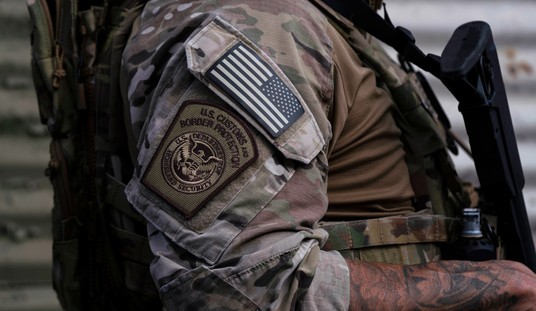
U.S. Chairman of the Joint Chiefs of Staff Gen. Joseph Dunford, center left, and Chief of the General Staff of the Chinese People’s Liberation Army Gen. Fang Fenghui shake hands after signing an agreement at the Bayi Building in Beijing, Tuesday, Aug. 15, 2017, to strengthen communication between the two militaries amid tensions concerning North Korea. (AP Photo/Mark Schiefelbein, Pool)
One of the best ways of gaining insights into what is going on in closed regimes is to look at what is being discussed in their “official” newspapers. Unlike newspapers in the West, official dailies are filled with propaganda and debates between points of view that are acceptable to the ruling elite…on second thought, they really aren’t all that different from US papers, are they? One also has to look at who is writing in journals for foreign consumption and what they are saying.
As the crisis with North Korea perks along toward either something or nothing, official Chinese academics are beginning to indicate that significant factions in China’s ruling party are willing to think about a North Korea without the pork-ulent Kim Jong Un in charge.
Chinese academics are publicly broaching the idea that China and the United States should share plans on how to deal with a potential conflict on the Korean Peninsula, a sign some say of how North Korea’s weapons test may be making Beijing more open to the once taboo subject.
Chinese officials have rebuffed top U.S. military brass for years in their efforts to share contingencies for war or regime collapse in Pyongyang, suspicious over Washington’s intentions and fearful that such engagement could further alienate North Korea, their once steadfast wartime ally.
Jia Qingguo, the dean of the School of International Studies at China’s elite Peking University and a respected adviser to Chinese leaders, said in an article this week that with the chances of war increasing daily, it might be time for China to “prepare for the worst.”
“When war becomes a real possibility, China must be prepared. And, with this in mind, China must be more willing to consider talks with concerned countries on contingency plans,” Jia wrote in an article first published on the online East Asia Forum run out of Australian National University.
Given recent developments, “Beijing may have no better choice than to start talking with Washington and Seoul,” Jia said.
Read the whole essay here and keep in mind that the author is a party official as well as academic and this reflects enough of what is going on in Beijing to not get him fired.
Here is another in the same vein. This one by Zhu Feng. He was affiliated with the same university and program as the author of the above piece and now he’s a professor at Nanjing University (sorry it is behind a paywall but you can read one article for free by registering.)
Chinese public opinion toward North Korea is also worsening, with many Chinese now critical of Beijing’s long-standing indecision to deal adequately with Pyongyang. A growing number of Chinese citizens believe that the North is a bad actor that poses a severe threat to China’s security interests, according to polls conducted by the Global Times. Another portion of the Chinese populace believes that Beijing should not assume the responsibility for denuclearizing the Korean Peninsula—Washington should. China’s only role, they believe, is to support reconciliation while bolstering negotiations, even if many Chinese are aware that such a limited role for China is remarkably inconsistent with the real threat posed by the North.
…
This is what a great many Chinese citizens want. When Beijing recently shuttered the Chinese branches of the South Korean-owned Lotte supermarket chain, providing land for the THAAD deployment, the move was viewed domestically as unconstructive. Although Beijing also managed to stir up Chinese nationalistic fervor by insisting that THAAD is a threat to China’s national security, it was arguably little more than a cleverly engineered political ruse. Actual popular resentment toward North Korea is surging, and Beijing’s passive North Korea policy is increasingly under fire domestically. For example, the Chinese academia and media are largely and distinctively divided over how Beijing should approach Pyongyang, and considering that many Chinese media outlets are wholly state owned, this signals that the likelihood of a reassessment of China’s commitment to North Korea is slowly but firmly gaining favor in Beijing.
Again, this is not written by a wild-eyed democracy activist. This is an academic/apparatchik.
Is this what China will do? Hard to tell. The very fact that they’ve reached the point where it is permissible to discuss tossing Kim Jong Un under the bus and engaging in joint contingency planning for a post-Kim Korea is a major departure from the past.














Join the conversation as a VIP Member